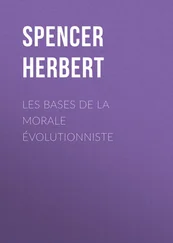Herbert Spencer - Essays - Scientific, Political, and Speculative, Volume II
Здесь есть возможность читать онлайн «Herbert Spencer - Essays - Scientific, Political, and Speculative, Volume II» — ознакомительный отрывок электронной книги совершенно бесплатно, а после прочтения отрывка купить полную версию. В некоторых случаях можно слушать аудио, скачать через торрент в формате fb2 и присутствует краткое содержание. Жанр: Философия, foreign_antique, foreign_prose, sketch, на английском языке. Описание произведения, (предисловие) а так же отзывы посетителей доступны на портале библиотеки ЛибКат.
- Название:Essays: Scientific, Political, and Speculative, Volume II
- Автор:
- Жанр:
- Год:неизвестен
- ISBN:нет данных
- Рейтинг книги:5 / 5. Голосов: 1
-
Избранное:Добавить в избранное
- Отзывы:
-
Ваша оценка:
- 100
- 1
- 2
- 3
- 4
- 5
Essays: Scientific, Political, and Speculative, Volume II: краткое содержание, описание и аннотация
Предлагаем к чтению аннотацию, описание, краткое содержание или предисловие (зависит от того, что написал сам автор книги «Essays: Scientific, Political, and Speculative, Volume II»). Если вы не нашли необходимую информацию о книге — напишите в комментариях, мы постараемся отыскать её.
Essays: Scientific, Political, and Speculative, Volume II — читать онлайн ознакомительный отрывок
Ниже представлен текст книги, разбитый по страницам. Система сохранения места последней прочитанной страницы, позволяет с удобством читать онлайн бесплатно книгу «Essays: Scientific, Political, and Speculative, Volume II», без необходимости каждый раз заново искать на чём Вы остановились. Поставьте закладку, и сможете в любой момент перейти на страницу, на которой закончили чтение.
Интервал:
Закладка:
This will at once be perceived to express the remaining distinction between the lower and the higher stages of positive knowledge. The prediction that a piece of lead will take more force to lift it than a piece of wood of equal size, exhibits certainty, but not completeness, of foresight. The kind of effect in which the one body will exceed the other is foreseen; but not the amount by which it will exceed. There is qualitative prevision only. On the other hand, the predictions that at a stated time two particular planets will be in conjunction; that by means of a lever having arms in a given ratio, a known force will raise just so many pounds; that to decompose a given quantity of sulphate of iron by carbonate of soda will require so many grains – these predictions show foreknowledge, not only of the nature of the effects to be produced, but of the magnitude, either of the effects themselves, of the agencies producing them, or of the distance in time or space at which they will be produced. There is both qualitative provision and quantitative prevision. And this is the unexpressed difference which leads us to consider certain orders of knowledge as especially scientific when contrasted with knowledge in general. Are the phenomena measurable ? is the test which we unconsciously employ. Space is measurable: hence Geometry. Force and space are measurable: hence Statics. Time, force, and space are measurable: hence Dynamics. The invention of the barometer enabled men to extend the principles of mechanics to the atmosphere; and Aerostatics existed. When a thermometer was devised there arose a science of heat, which was before impossible. Of such external agents as we have found no measures but our sensations we have no sciences. We have no science of smells; nor have we one of tastes. We have a science of the relations of sounds differing in pitch, because we have discovered a way to measure these relations; but we have no science of sounds in respect to their loudness or their timbre , because we have got no measures of loudness and timbre . Obviously it is this reduction of the sensible phenomena it presents, to relations of magnitude, which gives to any division of knowledge its specially scientific character. Originally men’s knowledge of weights and forces was like their present knowledge of smells and tastes – a knowledge not extending beyond that given by the unaided sensations; and it remained so until weighing instruments and dynamometers were invented. Before there were hour-glasses and clepsydras, most phenomena could be estimated as to their durations and intervals, with no greater precision than degrees of hardness can be estimated by the fingers. Until a thermometric scale was contrived, men’s judgments respecting relative amounts of heat stood on the same footing with their present judgments respecting relative amounts of sound. And as in these initial stages, with no aids to observation, only the roughest comparisons of cases could be made, and only the most marked differences perceived, it resulted that only the most simple laws of dependence could be ascertained – only those laws which, being uncomplicated with others, and not disturbed in their manifestations, required no niceties of observation to disentangle them. Whence it appears not only that in proportion as knowledge becomes quantitative do its previsions become complete as well as certain, but that until its assumption of a quantitative character it is necessarily confined to the most elementary relations.
Moreover it is to be remarked that while, on the one hand, we can discover the laws of the greater part of phenomena only by investigating them quantitatively; on the other hand we can extend the range of our quantitative previsions only as fast as we detect the laws of the results we predict. For clearly the ability to specify the magnitude of a result inaccessible to direct measurement, implies knowledge of its mode of dependence on something which can be measured – implies that we know the particular fact dealt with to be an instance of some more general fact. Thus the extent to which our quantitative previsions have been carried in any direction, indicates the depth to which our knowledge reaches in that direction. And here, as another aspect of the same fact, it may be observed that as we pass from qualitative to quantitative prevision, we pass from inductive science to deductive science. Science while purely inductive is purely qualitative; when inaccurately quantitative it usually consists of part induction, part deduction; and it becomes accurately quantitative only when wholly deductive. We do not mean that the deductive and the quantitative are coextensive; for there is manifestly much deduction that is qualitative only. We mean that all quantitative prevision is reached deductively; and that induction can achieve only qualitative prevision.
Still, however, it must not be supposed that these distinctions enable us to separate ordinary knowledge from science; much as they seem to do so. While they show in what consists the broad contrast between the extreme forms of the two, they yet lead us to recognize their essential identity, and once more prove the difference to be one of degree only. For, on the one hand, much of our common knowledge is to some extent quantitative; seeing that the amount of the foreseen result is known within certain wide limits. And, on the other hand, the highest quantitative prevision does not reach the exact truth, but only a near approach to it. Without clocks the savage knows that the day is longer in the summer than in the winter; without scales he knows that stone is heavier than flesh; that is, he can foresee respecting certain results that their amounts will exceed these, and be less than those – he knows about what they will be. And, with his most delicate instruments and most elaborate calculations, all that the man of science can do, is to reduce the difference between the foreseen and the actual results to an unimportant quantity. Moreover, it must be borne in mind not only that all the sciences are qualitative in their first stages, – not only that some of them, as Chemistry, have but lately reached the quantitative stage – but that the most advanced sciences have attained to their present power of determining quantities not present to the senses, or not directly measurable, by a slow process of improvement extending through thousands of years. So that science and the knowledge of the uncultured are alike in the nature of their previsions, widely as they differ in range; they possess a common imperfection, though this is immensely greater in the last than in the first; and the transition from the one to the other has been through a series of steps by which the imperfection has been rendered continually less, and the range continually wider.These facts, that science and ordinary knowledge are allied in nature, and that the one is but a perfected and extended form of the other, must necessarily underlie the whole theory of science, its progress, and the relations of its parts to each other. There must be incompleteness in any history of the sciences, which, leaving out of view the first steps of their genesis, commences with them only when they assume definite forms. There must be grave defects, if not a general untruth, in a philosophy of the sciences considered in their interdependence and development, which neglects the inquiry how they came to be distinct sciences, and how they were severally evolved out of the chaos of primitive ideas. Not only a direct consideration of the matter, but all analogy, goes to show that in the earlier and simpler stages must be sought the key to all subsequent intricacies. The time was when the anatomy and physiology of the human being were studied by themselves – when the adult man was analyzed and the relations of parts and of functions investigated, without reference either to the relations exhibited in the embryo or to the homologous relations existing in other creatures. Now, however, it has become manifest that no true conceptions are possible under such conditions. Anatomists and physiologists find that the real natures of organs and tissues can be ascertained only by tracing their early evolution; and that the affinities between existing genera can be satisfactorily made out only by examining the fossil genera to which they are akin. Well, is it not clear that the like must be true concerning all things that undergo development? Is not science a growth? Has not science, too, its embryology? And must not the neglect of its embryology lead to a misunderstanding of the principles of its evolution and of its existing organization?
Читать дальшеИнтервал:
Закладка:
Похожие книги на «Essays: Scientific, Political, and Speculative, Volume II»
Представляем Вашему вниманию похожие книги на «Essays: Scientific, Political, and Speculative, Volume II» списком для выбора. Мы отобрали схожую по названию и смыслу литературу в надежде предоставить читателям больше вариантов отыскать новые, интересные, ещё непрочитанные произведения.
Обсуждение, отзывы о книге «Essays: Scientific, Political, and Speculative, Volume II» и просто собственные мнения читателей. Оставьте ваши комментарии, напишите, что Вы думаете о произведении, его смысле или главных героях. Укажите что конкретно понравилось, а что нет, и почему Вы так считаете.












